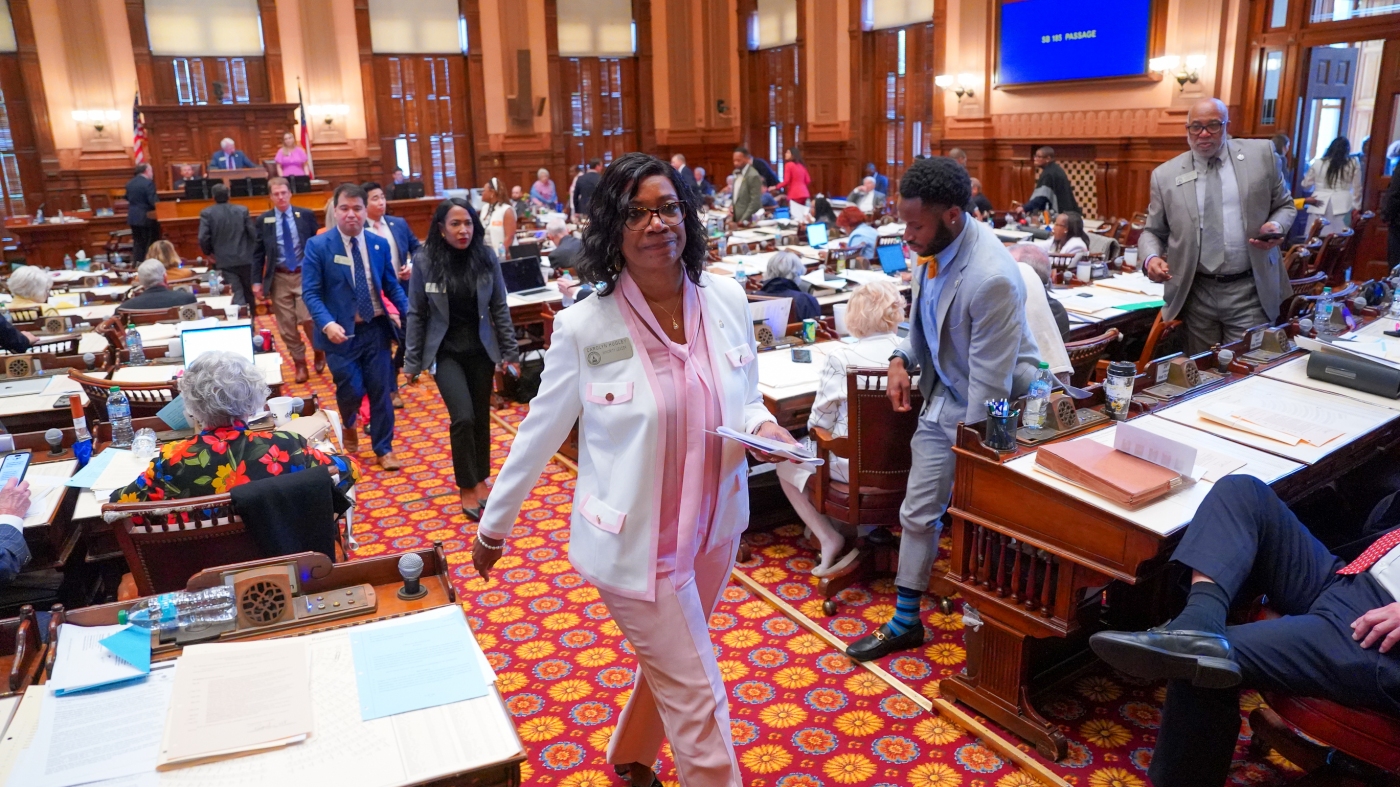Contentious Transgender Legislation Dominates State Legislatures
ATLANTA – State legislatures this spring have become a battleground over transgender rights, focusing on issues such as bathrooms, medical care, and the definition of gender. This focus is largely driven by Republican lawmakers who have introduced numerous bills that challenge transgender rights, putting Democrats in a difficult political position.
While many of these proposed bills do not become law, they are influential in shaping debates and forcing legislative votes. For instance, Iowa lawmakers have removed gender identity protections from civil rights laws, and Wyoming has barred state agencies from mandating the use of preferred pronouns. Alabama has also enacted legislation defining gender-specific terms like “father” and “girl.”
This week, Maine lawmakers considered banning transgender athletes from girls’ school sports teams, a move advocated by the Trump administration. Supporters argue these measures protect fairness and public funds, while opponents see them as discriminatory and harmful to a vulnerable group.
Increasing Number of Bills Each Year
Since a 2016 North Carolina law mandating bathroom use based on birth-assigned sex, bills targeting transgender rights have surged. By 2021, the focus shifted to transgender athletes and restricting gender-affirming treatments, particularly for minors. The Human Rights Campaign has noted a shift in momentum against these bills, yet the issue remains a hot topic in political campaigns.
The American Civil Liberties Union (ACLU) reports a record 575 bills filed in 2025, surpassing previous years. The Trans Legislation Tracker identifies over 800 bills negatively impacting transgender and non-conforming individuals.
Family Policy Alliance’s Joseph Kohm III critiques these figures, suggesting they include many unlikely to pass, inflating the numbers. However, Kohm acknowledges growing political interest, stating, “Those waves across the country have turned this into a slow burn that’s finally coming to a boil.”
Democrats Grapple with Legislative Challenges
Georgia serves as a microcosm of the broader legislative struggle. Republicans have introduced bills to ban transgender girls from girls’ sports, limit puberty blockers for minors, and exclude gender-affirming care from state healthcare plans. When a bill to ban such treatments for prison inmates came up, some Democrats voted in favor, recognizing public sentiment. Democratic Sen. Elena Parent admitted, “I feel like we’ve done more bills this session picking on transgender folks than we’ve done anything else.”
In contrast, the state House saw Democrats walking out in protest, a move criticized by Republicans but defended by Democrats like House Minority Leader Carolyn Hugley, who said, “People sent us here to do great work. They did not send us here to bully people, to discriminate against people.”
Future Political Implications
Republican strategist Brian Robinson believes these debates provide potent material for campaign strategies, stating, “Democrats ‘refused’…to stand up for taxpayers when given the choice to ban transition surgeries for prisoners.” Meanwhile, Pew Research Center data suggests growing public support for transgender restrictions.
ACLU’s Chase Strangio argues this shift results from conservative messaging portraying transgender people as a threat, warning against turning public sentiment against them. Strangio emphasizes the importance of constitutional rights to protect minority groups.
As the issue continues to be a focal point in legislative and electoral politics, transgender advocates and their allies are reassessing strategies. They aim to humanize transgender individuals and address broader public concerns, such as housing costs, to maintain voter support.
This article was originally written by www.npr.org






Be First to Comment